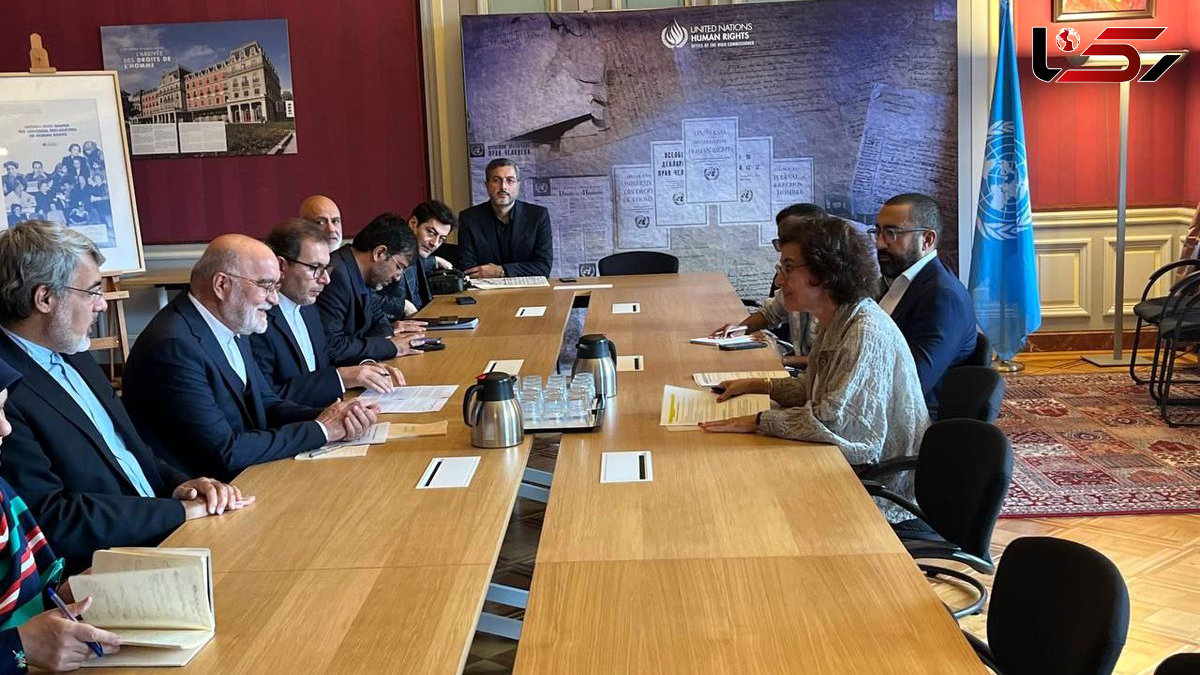Deputy Head of Iran’s Judiciary Meets Deputy UN High Commissioner for Human Rights
Nasser Seraj: “During the 12-Day War, We Witnessed Widespread Human Rights Violations”
Rokna Political Desk: Nasser Seraj, Secretary of Iran’s High Council for Human Rights and Deputy for International Affairs of the Judiciary, met with Nada Al-Nashif, Deputy High Commissioner for Human Rights of the United Nations.

According to Rokna, citing the Judiciary’s Media Center, Seraj, who traveled to Geneva to participate in the 60th session of the UN Human Rights Council, held an important meeting on Monday, September 16, 2025, with Nada Al-Nashif to discuss cooperation and exchanges with international institutions.
The meeting focused on bilateral cooperation and interactions in the field of human rights. Present at the session were Ali Bahraini, Iran’s Ambassador and Permanent Representative to the UN in Geneva; Mr. Sargazi, Head of the Parliamentary Legal and Judicial Commission; Mr. Vadiati, Director General for Human Rights at the Ministry of Foreign Affairs; and several families of martyrs of the 12-Day Imposed War.
The Secretary of the High Council for Human Rights emphasized the Islamic Republic of Iran’s commitment to constructive engagement with human rights institutions. Referring to past interactions, including exchanges of delegations and joint workshops in Tehran and Geneva, he called for a professional and non-political approach by the Office of the High Commissioner for Human Rights.
Seraj criticized the “unfair conduct” of the fact-finding mission regarding the 2022 unrest in Iran and the extension of its mandate, describing the mission’s undocumented reports as damaging to the credibility of the United Nations.
He further criticized the lack of firm positions against Israeli and U.S. aggressions toward Iran, particularly during nuclear negotiations, and urged explicit condemnation of such aggressions and accountability for the perpetrators.
Outlining Iran’s strategy, Seraj stressed constructive engagement, substantive cooperation, and multicultural universality, expressing hope for expanded collaboration with the UN Human Rights Office.
“During the 12-Day War, we witnessed widespread violations of human rights,” he stated, citing attacks by Israel and the United States against Iran’s nuclear facilities, media centers, health facilities, Evin Prison, as well as residential and rural areas. He described these as clear violations of international law.
According to official figures, these attacks by July 15, 2025, resulted in more than 1,062 martyrs and 5,800 injured, including 45 children and adolescents, 102 women, and 14 scientific elites.
Seraj warned that the silence and inaction of governments in the face of gross violations of peremptory norms of international law constitute international responsibility, calling for urgent, effective, and coordinated action by governments and international bodies—particularly UN human rights mechanisms—to address ongoing violations that threaten global peace, security, and human rights.
Both parties underscored the necessity of constructive engagement and avoiding politicized and selective approaches in human rights issues.
At the conclusion of the meeting, Seraj presented Al-Nashif with the Judiciary’s compendium of human rights documents, and both sides reaffirmed the need for a non-political approach to human rights matters.
Additionally, the families of martyrs of the 12-Day Imposed War urged clear positions and concrete actions by bodies such as the UN High Commissioner for Human Rights in response to the crimes of the Israeli regime.
Send Comments